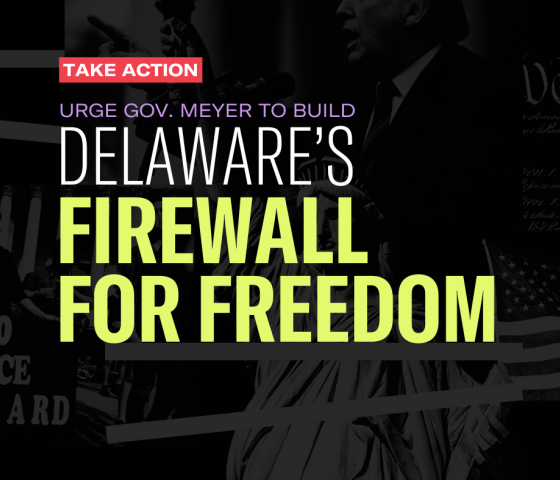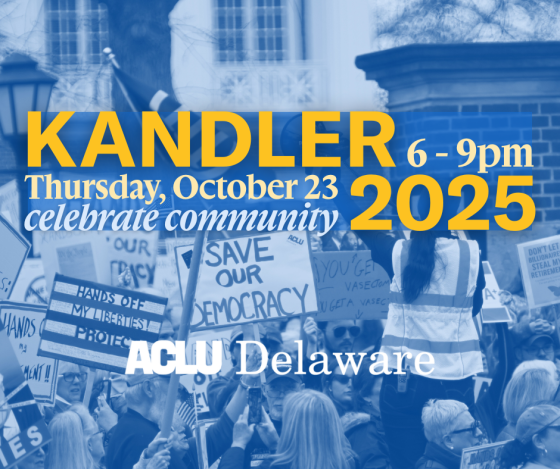By: Shawn Coulter
At the start of the year, I didn’t know what to do; my stress levels were near an all-time high, my faith an all-time low. The world seemed crazy, and I felt alone in my recognition that something needed to be done. But what, how, and by whom? As the reality of my student loan debt shrunk the possibility for me to leave my job, relocate, or even afford to move out of my parents’ house, I felt as small, isolated, and insignificant as the forces I sought to oppose would want me to feel. Then, I stumbled upon an opportunity to volunteer for the ACLU of Delaware.
Being a first-time volunteer, I had no idea what kind of a crowd would await me at the Firewall for Freedom activist training I attended on March 15th. Pessimism tempered my expectations, while my well of hope remained barren and silent. What I found were at least a hundred other Delawareans who poured like a rainstorm into the meeting room of the Unitarian Universalist Fellowship of Newark.
My well overflowed.
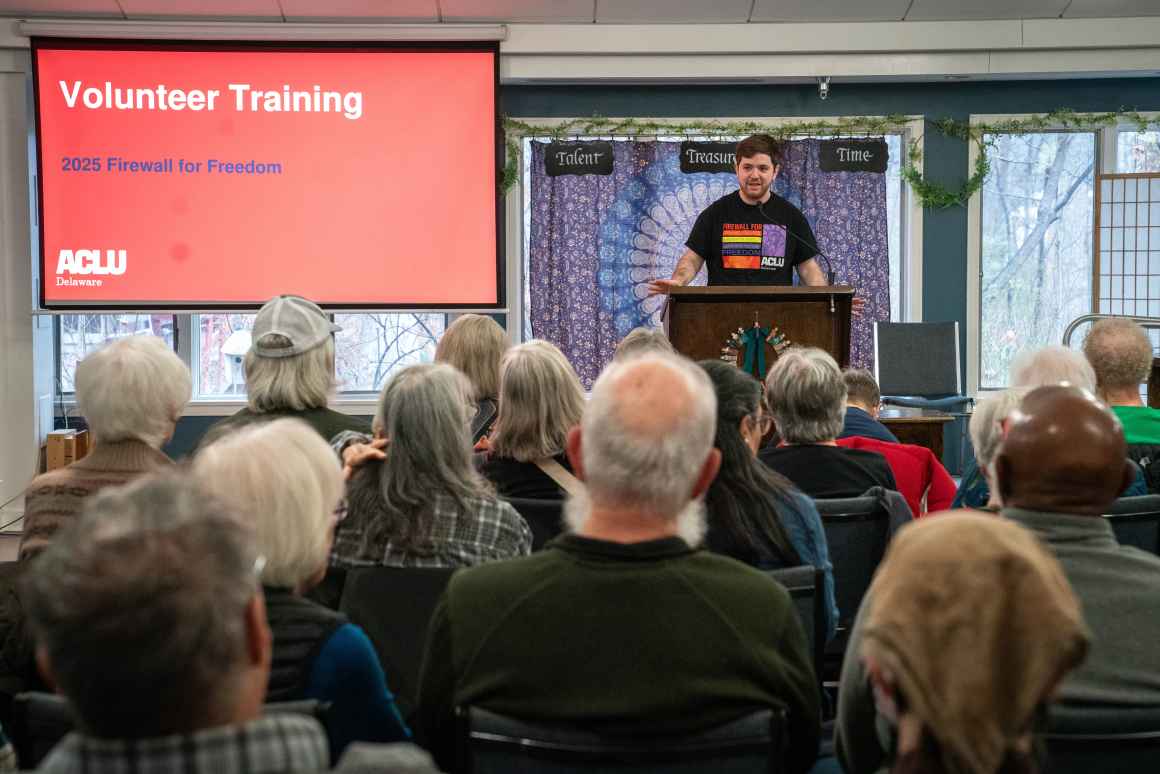
The training was led by five excellent ACLU-DE staff members: Andrew, Branden, Charito, Mike, and Rachael. Participants arrived and were instructed to sit in the section which best represented their interest as an advocate, choosing between immigrants’ rights, LGBTQ justice, reproductive freedom, and voting rights. After some brief introductions (and a tasty snack bar), Mike—the executive director—began with the presentation which explained the skills advocates need to inspire change via their representatives and local leaders. With an upbeat charm that built momentum and excitement, he explained a number of steps people can take to make themselves known to their local governance and begin to exert influence — from attending every possible community event that representatives announce to the essential building blocks of a successful meeting with an official.
Many took notes throughout the presentation, nodding along thoughtfully with each new piece of information. Some had been through these trainings before and were instead accompanying an interested friend. All left with both the skills to influence change and an apparent interest in doing so.
After the presentation, each section was led to a breakout room where they could practice how to address their respective civil rights topics in a meeting with the skills that they had learned. It was amazing to see a range of people all interested in civil liberty issues; groups consisting of different races, ages, and genders got along harmoniously as they worked to hone their skills. As I walked through the rooms with my camera (as the photography volunteer), I heard tidbits and fragments of conversations. What I saw, however, painted a full picture of a unity that many in power right now have sought desperately to downplay and undermine.
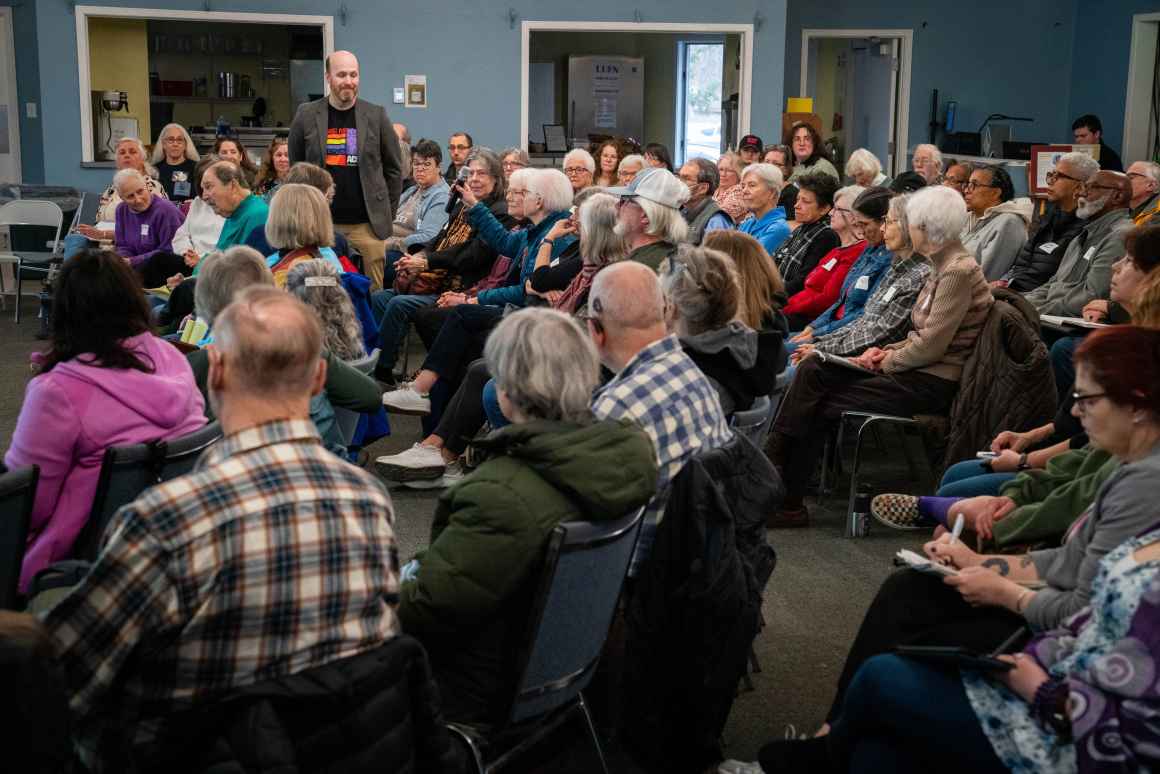
People laughed in the reproductive freedom room. A woman cried in the LGBTQ breakout room. In the immigrants’ rights group, a nervous person was guided through the exercise by a total stranger and ended up more confident in their approach. People began to lean in, to gesture, to express more fervently, and the volume graduated into a chorus of passionate activism. Normally, these topics induce intense emotions in me due to my proclivity in interacting with them online. Here, the whole expanse of human emotion was clearly visible, and often softened by the acceptance, understanding, or reciprocation of others from whom those things may not be expected.
What surprised me the most was actually voiced by another young adult in their twenties, who shared when the group rejoined that they were happy to see so many older people attending the training. The immense presence of the older generation here dispelled the harmful notion and stereotype that today’s activists are just naïve young people riled up about everything. Not only that, but it also dispelled the myth that our seniors live in apathy of “the world they’ve created,” as many in Gen-Z have claimed.
And why do these stereotypes exist? Because our social media feeds don’t show us this. Because those are the lines by which dangerous rhetoricians have divided us.
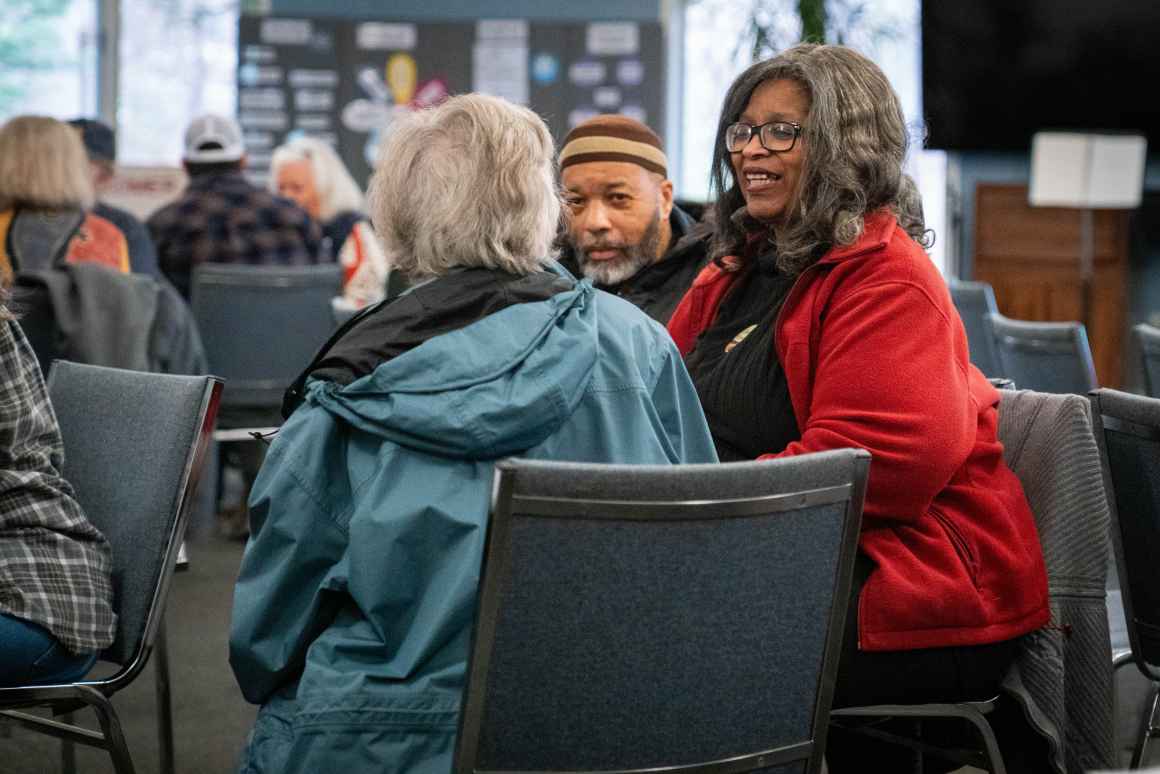
I came to this training feeling hopeless and alone, and I know now that is partially because I was putting the roles of many onto just myself. I distrusted my family, my friends, my neighbors (most of whom I do not know). My algorithm did not highlight community efforts, success stories, or open-minded and collaborative communication. Instead, it showed me vitriolic and inflammatory reels that highlighted our division, stoked panic for our future, and illustrated a hyper-online community comprised largely of instigating bots crying doom in an echo chamber and drowning each other in their accumulated tears.
When I left the event, I saw how strangers can come together under leadership, the wide variety of people who care and are willing to try, the complex real emotions that make fighting for change difficult and vulnerable, and the crucial skills and specialties that enable successful change which unassuming individuals bring to the table. What this training illustrated more than anything else for me was that people’s real stories, stories which defy appearances, are being suffocated by narratives designed to make strangers out of us all. This training showed me that even in a meeting with a representative a team of people, each with their own specialties, is necessary to deliver a convincing presentation, and that as long as we are kept apart, we are withheld from our true potential as changemakers.
It will always take less to remain a stranger. To learn about others requires vulnerability. The safe world of digital media, where everyone is spoon-fed a community of like-minded individuals (again, many of whom are not even real) and exposed to individually tailored content meant to evoke an emotional response, is shouting constantly at us that it is more dangerous than ever to be vulnerable. That is partly true, but far truer for individuals than communities.
I’ve learned that people care. I’ve learned that it is safer to take a gamble on humanity than many loud voices make it out to be. And I’ve learned that, as a community of many different individuals and organizations, we can make a significant difference.
Now that I better understand the role my skills allow me to fill, in my case as a storyteller, I can more easily find others to fulfill other purposes, such as a policy expert who is more attuned to the inner workings of the government and its many processes than myself. Rather than spend hours I don’t have attempting to understand every single possible part of a situation, I can create a team and segment responsibilities and streamline my approach to activism to get the most out of my interactions with my Delaware government. Where before I underestimated and distrusted those around me, I am now able to find crucial value and feel more comfortable than ever searching for it in my community.
